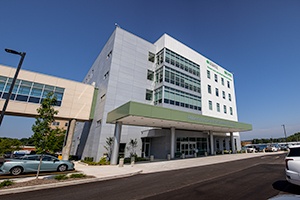Movement disorders affect the ability to control and coordinate muscle movements, leading to symptoms such as tremors, stiffness or involuntary movements. At Marshall Health, our specialists provide expert diagnosis and personalized treatment plans to help patients manage symptoms and maintain their quality of life.
Movement disorders may develop due to:
Symptoms will vary in severity and affect different parts of the body depending on the individual and cause. They can include:
At Marshall Health, our movement disorder specialists use a comprehensive approach to diagnosis, including:
Treatment is tailored to each patient’s needs and may vary depending on the type and severity of the movement disorder. Options include:
Although movement disorders present unique challenges, many individuals continue to lead active, fulfilling lives with proper management and support. Marshall Health offers resources, education and local support groups to help patients and families navigate their journey.
More information about movement disorders can also be found at wvmda.org/education.
Clinical Interests:
Locations:
Clinical Interests:
Locations:

A provider-based department of Cabell Huntington HospitalRobert and Lena Shell Medical Pavilion1340 Hal Greer Blvd.
Building 2, Fourth Floor (Suite #4000)
Huntington, WV 25701
Phone: 304.691.1787

An outpatient department of Cabell Huntington Hospital
Marshall Health - Teays Valley Main Building
300 Corporate Center Drive
2nd Floor
Scott Depot, WV 25560
Phone: 304.691.6931